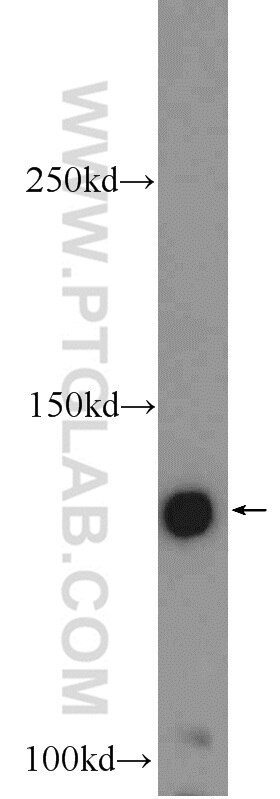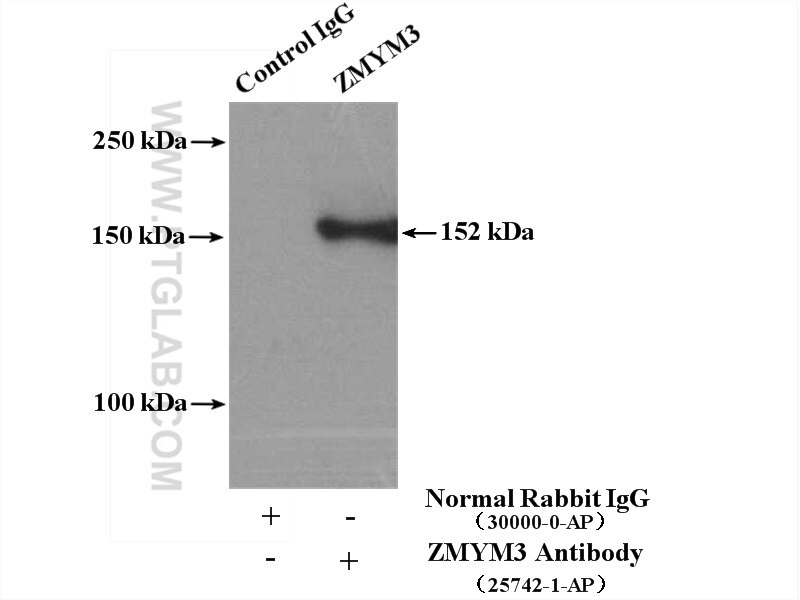ZMYM3 Polyclonal antibody
ZMYM3 Polyclonal Antibody for IP, WB,ELISA
Host / Isotype
Rabbit / IgG
Reactivity
human, mouse
Applications
WB, IP,ELISA
Conjugate
Unconjugated
Cat no : 25742-1-AP
Synonyms
Validation Data Gallery
Tested Applications
| Positive WB detected in | mouse brain tissue |
| Positive IP detected in | K-562 cells |
Recommended dilution
| Application | Dilution |
|---|---|
| Western Blot (WB) | WB : 1:500-1:1000 |
| Immunoprecipitation (IP) | IP : 0.5-4.0 ug for 1.0-3.0 mg of total protein lysate |
| It is recommended that this reagent should be titrated in each testing system to obtain optimal results. | |
| Sample-dependent, Check data in validation data gallery. | |
Product Information
The immunogen of 25742-1-AP is ZMYM3 Fusion Protein expressed in E. coli.
| Tested Reactivity | human, mouse |
| Host / Isotype | Rabbit / IgG |
| Class | Polyclonal |
| Type | Antibody |
| Immunogen | ZMYM3 fusion protein Ag22701 |
| Full Name | zinc finger, MYM-type 3 |
| Calculated Molecular Weight | 1370 aa, 152 kDa |
| Observed Molecular Weight | 190-200 kDa |
| GenBank Accession Number | BC013009 |
| Gene Symbol | ZMYM3 |
| Gene ID (NCBI) | 9203 |
| RRID | AB_2880221 |
| Conjugate | Unconjugated |
| Form | Liquid |
| Purification Method | Antigen affinity purification |
| Storage Buffer | PBS with 0.02% sodium azide and 50% glycerol pH 7.3. |
| Storage Conditions | Store at -20°C. Stable for one year after shipment. Aliquoting is unnecessary for -20oC storage. 20ul sizes contain 0.1% BSA. |
Background Information
ZMYM3, also named as DXS6673E, KIAA0385, and ZNF261, is a 1370 amino acid protein, which may be a component of a BHC histone deacetylase complex. ZMYM3 is most abundant in brain, moderate in muscle and heart, low in other tissues except placenta. ZMYM3 plays a role in the regulation of cell morphology and cytoskeletal organization.
Protocols
| Product Specific Protocols | |
|---|---|
| WB protocol for ZMYM3 antibody 25742-1-AP | Download protocol |
| IP protocol for ZMYM3 antibody 25742-1-AP | Download protocol |
| Standard Protocols | |
|---|---|
| Click here to view our Standard Protocols |



